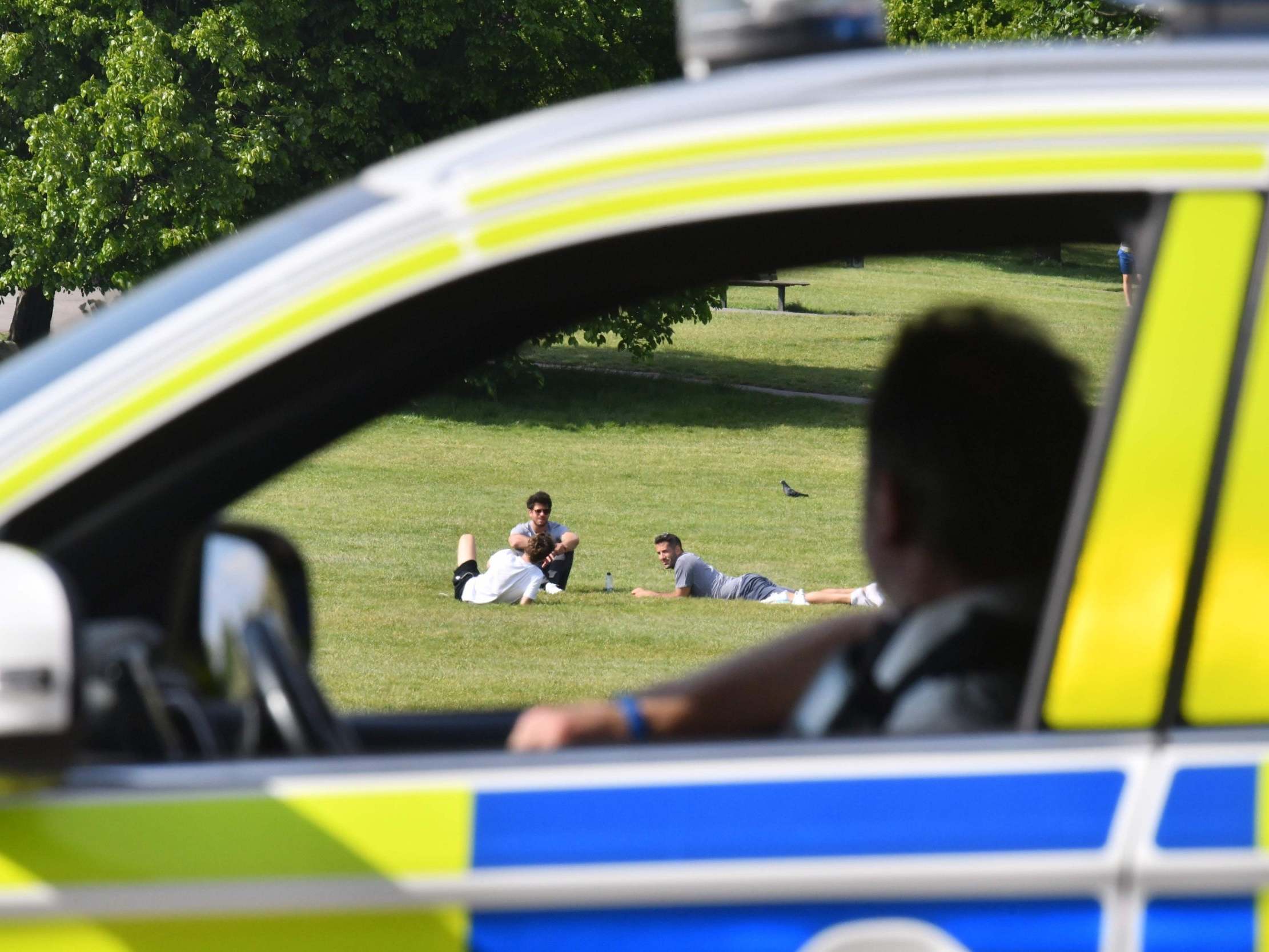Police still can’t explain why black and Asian people were fined more for lockdown breaches
Analysis: Research fails to dispel claims that black and ethnic minority communities have been ‘over-policed and under-protected’ during the pandemic, Lizzie Dearden writes

Official analysis has proved that black and Asian people were handed disproportionately high numbers of coronavirus fines during lockdown, but police cannot explain why.
Independent research commissioned by the National Police Chiefs’ Council (NPCC) said that the gaps “could legitimately result from the fair application of the regulations when sub-groups differ in their observance of the regulations, or from an uneven enforcement by the police of the regulations across different sub-groups of the population”.
It found that black and Asian people were 1.8 times more likely to be fined for breaking lockdown laws in England and Wales between when they came into force on 27 March and 25 May.
Mixed-race people were 1.2 times more likely to be fined and all other ethnic groups were fined at the same rate as white people.
Officers were instructed to use fines as a “last resort” after encouraging people to follow the law voluntarily and return home, and had many times more interactions than the 17,000 fines given in the period.
The report said that because those encounters were not recorded, there is no data to show whether police treated black and ethnic minority people suspected of breaking the rules more harshly.
“With that data it would be possible to assess whether people from different ethnic backgrounds, who the police engaged with, were treated differently,” the document added.
“We don’t know whether there was any disproportionality in the initial police-public contacts and the extent to which any enforcement action made disproportionality better or worse.”
It said racial disproportionality compared to the population of areas where people were fined, particularly in rural beauty spots, could partly be explained by non-residents travelling into them from cities.
Researchers found that data suggested different police forces were enforcing coronavirus laws at different rates, and that people may have been observing the regulations to varying degrees across the country.
They questioned whether there had been a “more sensitive approach” to the ban on leaving home without reasonable excuse by urban forces like the Met and Greater Manchester Police, and if their regional counterparts had a “lower tolerance” around beauty spots.

The NPCC said individual chief constables would be “interrogating” data in their local area, but several have already offered explanations.
Greater Manchester Police was among those forces saying that fines reflected the “resident population in the local areas that the notices were given”.
The NPCC itself pointed to the fact that young men of all races were disproportionately fined.
Chair Martin Hewitt suggested that proactive operations against violence and drug dealing during the lockdown, when most crime types plummeted, could have affected figures.
“Areas of that have been a focus of police activity are also areas with a higher concentration of black, Asian and minority ethnic people, which also increases the possibility of officers identifying and dealing with breaches during those deployments,” he said.
“In communities or groups with lower trust in police, attempts to encourage before enforcing may be less successful.”
That explanation may comfort police leaders, but for people living in the communities referred to it will reinforce the perception that they have been “over-policed and under-protected” during the coronavirus pandemic.
Join our commenting forum
Join thought-provoking conversations, follow other Independent readers and see their replies
Comments